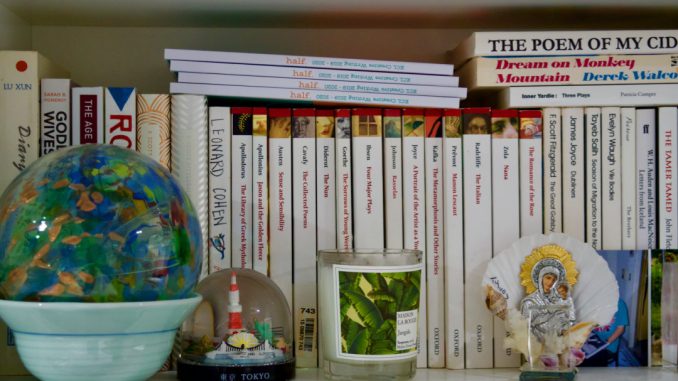
♬These are a few of my favourite things ♪ about King’s Comparative Literature BA

Initially I was applying only for English Literature undergraduate degrees, but an interest in literature from more countries in more languages kept telling me something was missing. Comparative Literature solved this problem. Despite its name, you are not always comparing two texts, but you are always reading texts from different parts of the globe and learning about their different socio-cultural histories. These are a few of my favourite things about the course:
1. Variety + Diversity
The course reflects what its lecturers specialize in and, as such, is made up of an incredible range of texts from across different nations. Besides the incredible diversity of the compulsory modules where you compare Don Quixote to the Turkish text My Name Is Red, you can take a few modules from so many departments. All at once, you can end up introducing yourself to American comic book theory in Genres of World Literature before studying opera in Forms of Shorter Narrative or Japanese films in Introduction to Film Studies. Consequently, you can be assessed in a variety of ways: your bookbinding skills, blog posts, your creative writing skills, and more. The flexibility of the degree and the diverse range of materials you can expose yourself to make it easy to tailor to your interests and the skills you want to improve!
2. Comprehensive
Lecturers and seminar leaders will rarely give you only one side of the story when it comes to debating any issue. Having to focus on literature from different cultures means that you expose yourself to different points of views across and within countries. This was made clearest to me while studying African literature, which we dissected from: white and black perspectives; city and rural perspectives; female and male perspectives; African and non-African perspectives. In a world that seems increasingly polarised by divisive politics, taking a degree that allows you to see the grey rather than just black or white gives you the skills you need to think objectively as well as empathetically about the world around you.
3. Current
Having been told that my degree has made me ridiculously ‘woke’, it is worth mentioning how politically relevant the degree is. The Canon, a second-year module that on first glance looks like it would focus on literary classics, reflected heavily on ‘cancel culture’ by dealing with pressing debates about whether a writer’s controversial political opinions should have an impact on whether or not we study their texts. Ideas of Nation, a compulsory module, unpicks the question of where has nationalism come from and asks if it is still relevant in today’s globalised society. Leaving the Comparative Literature BA, I feel confident in that I am getting a degree that allows me to tackle a variety of modern issues head on.
4. Incredibly Stimulating
Having to work with literature from a variety of different countries, from a variety of different genres, in a variety of different forms is, needless to say, challenging. However, this is precisely what makes the degree so rewarding. The multidisciplinary approach of the department means that you not only unpick literature from different places, but the politics and histories behind different texts. Even in first year we would tackle big multidisciplinary thinkers like Marx, Freud, Levi-Strauss, and de Saussure. The flexibility, analytical skills, linguistic skills, ability to sensitively discuss controversial topics, and other transferable skills that I have learned in my time at King’s will always stick with me and aid me in employment.
5. Close-knit Community
Rarely would one feel comfortable debating about issues like FGM, racial slurs, exoticisation, and other controversial topics. However, we could cover all of these and still maintain a safe-space for discussion in a single two-hour seminar for Writing Africa, a second year module. Moreover, this isn’t a rare occurrence in a Comparative Literature department that actively works to tackle the world’s issues. It is precisely the close-knit intellectual community like the one fostered by the Comparative Literature department at King’s that allows for a safe space in which you can unpick difficult topics in today’s society.
So…
Truth be told, I gave very little thought to applying for King’s Comparative Literature BA and I did not really know what Comparative Literature even was when I did. Yet, after giving its website a read I followed a gut instinct that it was the perfect course for me. Time would prove that gut instinct right.
Read More
If you’re interested in the types of research in the Comparative Literature department at King’s, check out Dr Zoe Norridge’s post here.
To learn more about the Comparative Literature BA at King’s, click here.

Leave a Reply